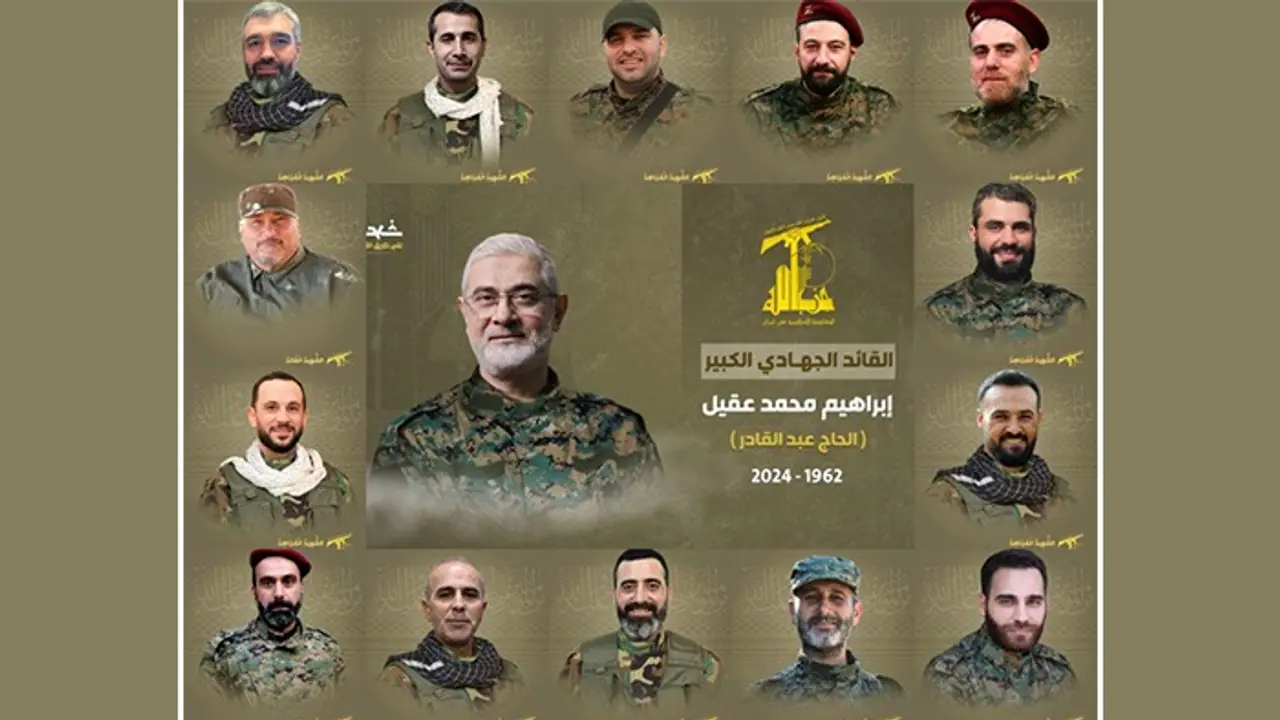Among those killed was Ibrahim Aqil, a senior commander in Hezbollah's elite Radwan Force, who had been involved in some of the group's most high-profile operations.
In a significant escalation in the ongoing conflict between Israel and Hezbollah, the Lebanese militant group confirmed the deaths of 14 of its members, including a top commander, in an Israeli airstrike on Beirut. Among those killed was Ibrahim Aqil, a senior commander in Hezbollah's elite Radwan Force, who had been involved in some of the group's most high-profile operations.

Also read: Who was Ibrahim Aqil, top Hezbollah Commander killed in Israeli strike on Beirut?
The strike, which occurred overnight in the Dahiyeh neighborhood of Beirut, targeted key Hezbollah personnel gathered underground beneath a residential building. Israel Defense Forces (IDF) spokesman Daniel Hagari confirmed the attack, stating that the group had been hiding among civilians, using them as human shields. The strike was part of a broader effort to dismantle Hezbollah's military infrastructure, with the IDF claiming the individuals targeted were involved in planning attacks against Israeli civilians.
Ibrahim Aqil, also known as Tahsin, was one of Hezbollah's most senior operatives and had been a top commander within the Radwan Force, an elite unit responsible for cross-border operations. Aqil's death marks a severe blow to the group, as he was a central figure in Hezbollah's strategic and military planning. He was linked to several significant operations, including Hezbollah's "Conquer the Galilee" plan, which aimed to infiltrate Israeli territory via tunnels and target civilians.
Aqil's militant activities date back to the 1980s, where he played a pivotal role in the bombings of the U.S. embassy in Beirut and a Marine barracks, resulting in hundreds of casualties. In April, the US had placed Aqil on a wanted list, offering financial rewards for information leading to his capture due to his involvement in Hezbollah's military activities and ties to the Iran-backed organization, which several countries, including Israel, the UK, and the US, have designated as a terrorist group.
Hezbollah identified several high-ranking members killed in the strike, including Ahmed Wahabi, who was described as a "commander" and the head of the group’s central training unit. Wahabi had also served as a top figure within the Radwan Force, known for his involvement in the Syrian Civil War, where Hezbollah supported the Assad regime. Other commanders killed included Taleb Abdullah and Muhammad Nasser, both leaders of regional divisions within Hezbollah.
This strike comes just months after the killing of Fuad Shukr, another senior member of Hezbollah’s military wing, in an Israeli airstrike. Shukr, along with Aqil, was referred to by Hezbollah as one of its "great jihadist leaders," emphasizing the group's reverence for these figures within its ranks.
The airstrike followed a week of escalating violence between Israel and Hezbollah. Earlier on Friday, Hezbollah launched a barrage of rockets into northern Israel, with the IDF reporting that over 140 rockets had been fired, damaging infrastructure and forcing residents to seek shelter. In response, Israeli warplanes conducted extensive air raids on southern Lebanon, targeting Hezbollah’s rocket launchers and military sites.
Since early October, the cross-border conflict between Hezbollah and Israel has intensified, with hundreds of Hezbollah fighters and Lebanese civilians killed. The violence erupted after Hezbollah fired on Israeli positions in solidarity with the Palestinians, following Hamas’s deadly attack on Israel on October 7.
The ongoing violence has caused widespread displacement, with tens of thousands fleeing their homes on both sides of the border. In Beirut, emergency response teams scrambled to rescue civilians trapped under the rubble following the airstrike, while streets in the Dahiyeh area were cordoned off by Hezbollah fighters.
The UN's political affairs chief, Rosemary DiCarlo, warned that the situation in the Middle East risks spiraling into a conflict that could “dwarf” the devastation already witnessed. Speaking at a UN Security Council session, DiCarlo urged all parties involved to exercise restraint and avoid further escalation, noting the severe humanitarian consequences of continued fighting.
Hezbollah’s leader, Hassan Nasrallah, condemned the Israeli airstrike, accusing Israel of crossing “all rules, laws, and red lines.” In a televised speech, Nasrallah vowed retaliation but signaled that Hezbollah was not seeking a full-scale war.
